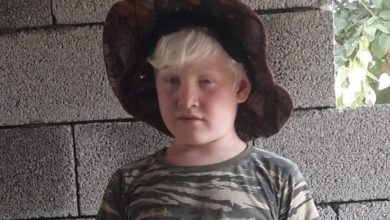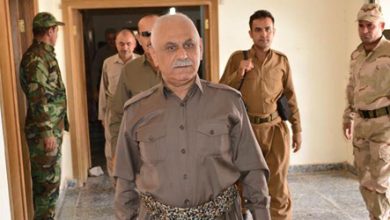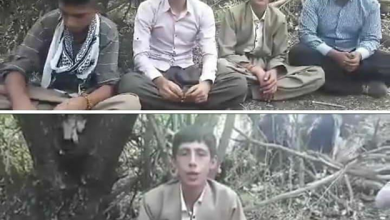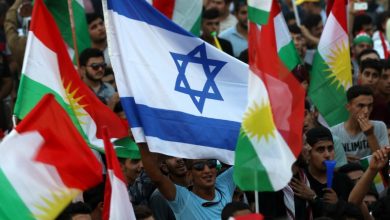By Hedwig Kuijpers
The Complexity of realising Kurdish Unity
Despite years of media suggesting otherwise, the Kurdish population do not have any unity, not between countries and not amongst themselves.
In Turkey, the PKK has held the ‘Kurdish political monopoly’, as it was very careful not to let any other Kurdish parties grow. Up until the 90’s, the PKK has disbanded several other groups, and has even murdered rival Kurdish politicians, leading to the severe marginalization of Kurdish parties with different political convictions, and has pushed large numbers of Kurds to vote pro-government due to its radicalism and the lack of an alternative, as can be concluded from Turkey’s latest elections’ results.
In Iraq, relative autonomy has not done the Kurdish unity any good. The leading political parties there barely get along. Quarrels between KDP and PUK are no uncommon headlines.
Iran knows several marginal Kurdish parties, ranging from PDKI and Komala to PJAK, that exist outside of the country and are mostly inactive, as Iranian Kurds are simply not that interested in seperatism, unlike their Turkish or Syrian counterparts.
Kurdish Unity in Syria
In a place as chaotic as Syria today, there is no less complexity in its political landscape. An alphabet soup of Kurdish political parties is mostly divided over two sides, pro-PYD or pro-ENKS.
“You could say the PYD is anti-Erdogan, not anti-Assad; and ENKS is anti-Assad, not anti-Erdogan,” Rena Netjes, an associate fellow at the Hague-based Clingendael Institute said in an interview in May.
The ENKS is a member of the ‘Syrian National Coalition of Revolutionary and Opposition Forces’, which is based in Turkey and has political backing from the
Kurdistan Region, Turkey, and Europe. The ENKS had originally allied with PYD as part of factions opposed to Syrian President Bashar al-Assad, but fell out when ENKS accused the PYD of assassinating and jailing its members and running a one-party state in ‘Rojava’, the self-proclaimed autonomous zone PYD’s Kurds have ruled in North-East Syria for the last few years.
The PYD took its chance to claim autonomy in 2013, and eventually seized control of a large area in Syria’s northeast when the Syrian Arab Army was busy fighting at other fronts against the FSA, where the Kurds are actually a minority. The Kurdish fighters displaced groups of non-Kurdish residents, while they established a self-governing Kurdish administration, which they termed ‘Rojava’. In 2016 – pushed by Washington – they declared federation, in order to include Arab subregions such as Raqqa and Deir ez-Zor to their territory, angering pro-ENKS Kurds that aim for a unified Kurdistan instead of a Syrian federation.
It’s on this chessboard that the US and France are seeking to find a way forward, reviving critical talks between rival Kurdish factions that have long stood in the way of the grand bargain in Syria the US and France aimed for. They hope that a Kurdish alliance could translate military support into political support for the Kurds to remain as a long-time ally in the region.
“There is pressure from the United States and the EU to unify the Kurdish factions in northeast Syria to improve political inclusivity,” says Nicholas A. Heras, who leads the Middle East Security Program at the Washington-based Institute for the Study of War.
ENKS charges that political opposition outside the PYD establishment cannot function in North-East Syria, accusing its administration of consolidating power into a one-party state. ENKS members have been arrested or gone missing, and ENKS offices in the area have been closed and even burned. Three previous attempts to get the two parties to reconcile have failed, and a conference organized by France last year did not result in any agreement due to the huge differences between them.
ENKS – unlike the PYD – has been able to participate in peace talks in Astana and Geneva, where the UN Security Council has been able to reach unanimous consensus on adopting Security Council Resolution 2254 into the framework to eventually bring an end to the war. If the PYD wishes to be present at the negotiation table next time, it is forced to carve out a deal with ENKS.
The PYD is facing its most important decision yet – the ultimate decision on which side to choose. PYD views ENKS and the mainstream Syrian opposition as being hopelessly co-opted by Turkey, particularly with the earlier invasions of large patches of SDF-territory. These invasions have even proven to us that though PYD has had financial support and military backing from the US, it has never fully turned its back on Syria’s government and its ally Russia. It was and is allowing the Syrian Arab Army to protect SDF-held areas, a deal that was seen as ‘signing a deal with the devil himself’ by the Kurdish ENKS-led opposition.
Thus, if PYD chooses ENKS, it can negotiate and sit down at the international table for a solution for Syria. On the other hand, choosing ENKS will close the door to cooperate and coexist in a Syria ruled by president Bashar al-Assad for good. Neither of its options will weaken the threat Turkey poses.
“We always demand democracy that guarantees the rights of the Kurdish people. Today, when we demand our rights, it does not divide Syria. The important thing is to keep our people’s identity. Basically, any party that doesn’t agree on these principles, can’t establish unity.” , stated Khalil Aldar after last week’s unification talks.
This statement by Khalil Aldar can be interpreted both ways. Khalil shows in his interview with Hawarnews that he resents both the opposition and the Syrian government. Still, one can interpret from his statements that whatever party will respond to their demands, they are open for negotiation with that party. Showing PYD knows very well they’re approaching a crossroads that will block one road off for good.
Turkey’s reaction
One of the greatest doubts being raised on the Kurdish reconciliation talks is Turkey’s possible reaction. Turkey is a key player in the US-NATO attack on Syria aiming for ‘regime change’. However, Turkey sees Kurdish unity as an existential threat, and rightly sees the PYD as the Syrian branch of the PKK, Turkey’s archenemy for 40 years. The PKK is responsible for the loss of thousands of lives since it started its military insurgency against the Turkish state.
Ankara has also aired its displeasure over the Kurdish unity talks, calling them an effort “to create an international representation space” for “the terrorist organization in northern Syria.”
In an attempt to please Turkey, the US presses for PKK members – that have led the region from behind the curtains ever since it started to send its fighters to Syria 2011 – to be purged from the ‘Rojava’ administration. Evidence of this is Sabri Ok, who was seen as “the PKK commissar” of ‘Rojava’, leaving Qamishli, and Bahoz Erdal carrying over all military responsibilities to Mazloum Kobane. Many PKK seniors that originate from other countries have reportedly left the region and returned to the mountains, though a large part of their cadre remains.
Many argue that the leaving of PKK senior members and a truce with the ENKS will be enough to fend off Turkey, others remind of the ever-pending threat. Turkey has been a prominent opponent of Kurdish independence. Turkey has until now launched three major operations against the Syrian Kurds, targeting key towns Afrin, Ras al-Ayn and Tel Abyad. The Kurds don’t have many cards left to play to avoid losing remaining parts of their territory, a threat made all the more likely after the October incursion and the subsequent deal brokered by Turkey and Russia that keeps the Turks and their rebels from annexing more land, for now.
France and US’ intentions
Both France and the US have reasons for their own to push for Kurdish unity.
France is desperate to not have to repatriate its ISIS militants, and thus has an interest in the Kurds’ long-term stability. The PYD-led administration holds tens of thousands of ISIS prisoners. Some of its citizens left France to join ISIS, and though it’s a prominent member of the multinational coalition that armed Syrian Kurds to counter ISIS, it has refused to repatriate captured ISIS members to face justice at home. That is largely because of ongoing radicalization issues in French prisons and french community, and out of fear that domestic law simply doesn’t cover the kind of crimes its citizens are accused of committing in Iraq and Syria.
The US simply wants a way out of the war Obama started 9 years ago, by funding and arming Syria’s opposition as the Arab spring hit the Middle East. It can not leave the country without realising a long-term solution for the country, neither can it leave the country to Bashar al-Assad, as it has opposed him for years. The latest sanctions imposed by the Caesar Law are proof of this, it is trying to make the government bend the knee through economical warfare, as it couldn’t reach its goals militarily.
The US and France both see the SDF and its affiliates as key to their plan for North-East Syria’s security, and to the prevention of an ISIS resurgence, but they’ll need Turkey on board for any long-term political aspirations they might have for the Syrian Kurds. Nobody knows what Turkey might do in the future, even if it decides to leave the Kurds in peace for now.
Syria, Russia and Iran
On the other hand, the Syrian government, and its allies Russia and Iran are a major player in the country too. Syria has been able to win back the greatest part of its country and has not given up through the years. The Syrian people love their president, and that goes for a large part of the North-East’s population too.
Imagining a Syria without Bashar al-Assad gets harder day by day, and many believe the opposition will not be able to remain. Both Russia and Iran have vowed to back the Syrian government to the end. That is why neither the US nor the European Union wants to get involved in actively fighting the Syrian Arab Army, as all parties know very well this will turn into an international, or even intercontinental war.
As we can see, there are many parties active at Syria’s chessboard, and the Kurds have turned into an important pawn. The world watches the PYD and its affiliated militias, as their choice might predict Syria’s future. At the same time, the US and France are actively trying to push them into a direction, and Bashar al-Assad remains open for dialogue on the other side, proven by his protection against the Turkish invasion. The Kurds have a major decision to make, and they know very well the consequences of this decision will either let them exist, or disappear from the chessboard forever.
208 7 minutes read






